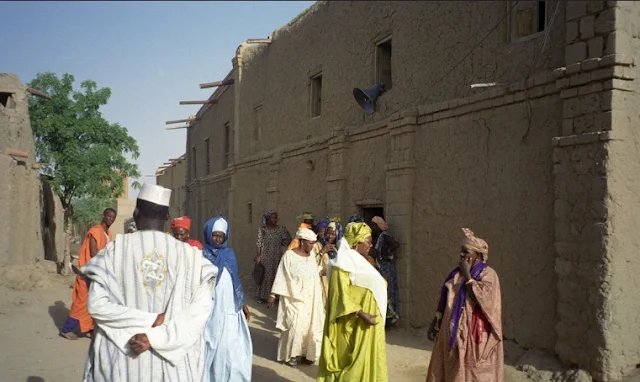Timbuktu is located close to the river Niger which soon became known as a place for business due to its location.
Timbuktu Elite University in the Desert
Founded by the Imagharen Tuareg, Timbuktu Mali was established in the 12th century, almost nine hundred years ago as a place where nomads could pasture and water their camels after traveling through the Sahara desert.
Continue exploring literary history and cultural memory in the African Bookshelf Hub .
 |
| Tuaregs in Timbuktu, Mali |
Three important mosques were constructed in Timbuktu, Djingareyber, Sankore, and Sidi Yahia. The Djingareyber Mosque, the initial construction in 1327, the Sankore Mosque or The University of Sankoré date it was constructed is unknown, but probably in the 14th century, between 1325 and 1433, not long after the Djingareyber was constructed, and the Sidi Yahia Mosque, was built around 1400. The three mosques compose the famous University of Timbuktu.
 |
| Djingareyber Mosque Timbuktu, Mali by emilio labrador |
The reign of Askia al-Hajj Muhammad, saw Timbuktu reach its political and intellectual height. Askia al-Hajj Muhammad better known as Askia the Great was a well-organized and shrewd administrator encouraging learning and literacy while fostering trade and commerce.
The eminent scholar Ahmed Baba produced many books on Islamic law during this time period. Mahmoud Kati published Tarik al-Fattah and Abdul-Rahman as-Sadi published Tarik as-Sudan two history books which are still widely used.
Timbuktu Elite University in the Desert


























